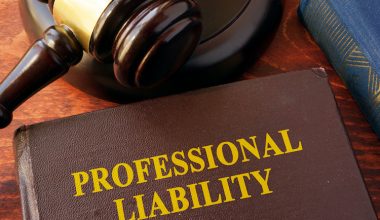You may have heard that if you have or are applying for an SBA EIDL or PPP loan, you are required to obtain business hazard insurance. What is the best small business hazard insurance? Why do you need it? How much does it cost? Where can you get it? All of these questions and more will be answered in this comprehensive guide.
What Is Business Hazard Insurance?
Business hazard insurance is a crucial safeguard that shields your valuable property from the unpredictable forces of nature. Hence, with this comprehensive coverage, your business is protected against a wide range of potential perils, including but not limited to hailstorms, fires, severe storms, and other catastrophic events. Also, by investing in this essential insurance, you can rest assured that your property is shielded from the devastating impact of these unforeseen circumstances, allowing you to focus on what truly matters – the success and growth of your business. In order to ensure coverage and receive compensation for any potential loss, it is imperative that each individual peril be explicitly included in the policy.
Furthermore, business hazard insurance and catastrophe insurance, while often used interchangeably by many individuals, are in fact distinct forms of insurance coverage. In the majority of instances, hazard insurance is commonly understood as a component of homeowners insurance that specifically provides coverage for the physical structure of the property. Commercial property insurance is a crucial component of any comprehensive insurance policy for small businesses. The purpose of this specialized coverage is to safeguard a business’s real estate and other physical assets. By including commercial property insurance in their insurance portfolio, small business owners can safeguard their valuable assets from a wide range of potential risks and perils. Whether it’s a retail store, office space, or manufacturing facility, commercial property insurance provides financial protection in the event of property damage, theft, or other unforeseen circumstances.
Also, by mitigating the potential financial losses associated with the property, Catastrophe insurance, also known as CAT insurance, is a distinct and independent policy that provides coverage for unforeseen and catastrophic events. This specialized form of insurance offers financial protection against natural disasters, such as hurricanes, earthquakes, floods, and wildfires, among others.
Small Business Hazard Insurance
Any company, no matter how well-protected its owners may feel, is always at risk from a variety of potential dangers. Your small business could go bankrupt or sustain significant damages without adequate protection. So, getting small business hazard insurance is essential to the survival of your firm.
Small business hazard insurance is a subset of small business insurance that safeguards the firm’s physical assets. Hazard insurance protects the assets of your small business, including the structure, the machinery, and, in some cases, the inventory and contents. Commercial property insurance is another name for this protection policy. In the event that a small company needs to take out a mortgage on a building or piece of equipment, the insurance policy will pay for the cost of the loan. In order to qualify for a loan for commercial property from the Small Business Administration (SBA), a company must first show proof that it has purchased hazard insurance. Your small business can get all the risk insurance it needs quickly and easily from a free insurance agent.
Do I Need Hazard Insurance for My Small Business?
Although the state may not have a legal requirement for it, it is very likely that your business will need to obtain small business hazard insurance in accordance with the guidelines set by your mortgage lender. While small hazard insurance may not be a legal requirement, it is highly advisable to contemplate its inclusion in order to safeguard your business’s valuable assets and property against a multitude of potential risks. Hence, by proactively securing this coverage, you can shield yourself from the financial burden that may arise from unforeseen hazards, sparing you the need to bear the expenses personally. The absence of hazard insurance poses a significant risk to your business, potentially leading to dire financial consequences, including the possibility of bankruptcy, in the event of a catastrophic loss.
Business Hazard Insurance Cost
Business hazard insurance is an integral component of your comprehensive home insurance policy. It is an essential component of homeownership that typically falls within a national average range of $1,250 to $1,650. This crucial form of protection safeguards homeowners against potential risks and perils, ensuring peace of mind and financial security. The cost of services may fluctuate depending on the geographical location, taking into account the level of vulnerability to potential disasters in your specific area. In order to secure a mortgage, the majority of lenders will typically mandate the inclusion of hazard insurance.
Best Business Hazard Insurance
Business hazard insurance is an essential safeguard that offers valuable financial support for a wide range of potential risks associated with operating a business. From property damage and liability claims to lawsuits and employee injuries, this comprehensive coverage ensures that entrepreneurs can navigate unforeseen challenges with peace of mind. Also, by providing the necessary financial assistance, business hazard insurance allows businesses to mitigate potential losses and maintain their operations smoothly. With its multifaceted protection, this indispensable asset is a wise investment for any business owner looking to safeguard their enterprise’s longevity and success. When it comes to safeguarding your small business, having the right insurance coverage is paramount.
Small business owners frequently seek out various types of insurance policies. These include general liability insurance, home insurance, professional liability insurance, workers’ compensation insurance, and business interruption coverage. Each of these policies serves a unique purpose in protecting your business from potential risks and liabilities. It is highly recommended that businesses of all sizes prioritize obtaining general liability coverage. However, the determination to acquire supplementary business hazard insurance coverage is contingent upon a multitude of factors, including but not limited to the number of employees, geographical location, and industry in which the business operates. Discover the best business hazard insurance coverage tailored to your specific needs by perusing our meticulously curated selection of the best business insurance companies available on the market.
#1. Nationwide
The company has achieved a notable position as the third-highest-rated provider of customer satisfaction in the small business insurance sector. Additionally, it has received an esteemed A+ rating from AM Best, indicating exceptional financial strength.
#2. State Farm
An impressive 856 out of 1000 customers are satisfied with State Farm. They’ve accomplished the same thing as Chubb and Nationwide, two other market giants. These reputable businesses are known for consistently exceeding customer expectations and meeting a wide range of requirements. Based on responses from 2,254 businesses with 50 or fewer employees, J.D. Power sent out a survey. These organizations were surveyed on billing and payment, claims, provider engagement, insurance products, and consumer satisfaction. J.D. Power undertook a thorough analysis of these components in order to comprehend small business insurance provider satisfaction. J.D. Power undertook a thorough analysis of these components in order to comprehend small business insurance provider satisfaction.
So, if you own a business, whether it’s a restaurant, an office, or a storefront, State Farm has you covered. State Farm’s paperless billing and automatic payments make insurance easier to manage. Contractors and business owners in the food service industry can get excellent protection from State Farm. Using State Farm’s digital platforms, you can easily handle your insurance and rest easy knowing that your business is secure. Purchasing business insurance provides multiple layers of safety for your company.
Business Owner’s Policies (BOPs) are packages of insurance policies designed specifically for the needs of small and medium-sized businesses. Surety and fidelity bonds protect against both employee and external fraud. Farm and ranch insurance covers agricultural risks. The company’s liability insurance is a necessary safety net. Examples include directors’ and officers’ liability, condo and homeowners association liability, employment practices liability insurance (EPLI), and professional liability. These comprehensive risk management strategies shield customers’ companies and their staff from potential dangers.
#3. Next Insurance
Next Insurance revolutionizes the business insurance landscape by seamlessly integrating cutting-edge technology. Hence, with the convenience of online quotes and claims, entrepreneurs can now effortlessly navigate the insurance process. Moreover, the inclusion of a user-friendly mobile app empowers policyholders to conveniently access their essential policy documents directly from their smartphones. Embrace the future of business insurance with Next Insurance. This company also customizes a wide range of coverage options to meet the unique needs of independent contractors and self-employed individuals.
#4. Travelers
Travelers’ workers’ compensation insurance is adaptable enough to meet the unique needs of your business. Their encompassing coverage gives you peace of mind, as it covers your workers in the case of an accident or illness on the job. They’ve designed our plans to give your staff the security and care they need, both financially and medically. Risk control professionals analyze your insurance needs.
Furthermore, rest assured that the professionals will fulfill your needs with utmost precision and efficiency. They have the resources to conduct thorough assessments through in-person and remote visits. The company offers TravPay, an easy billing system, in addition to its main offerings. This cutting-edge payroll technology automatically includes payments for workers’ compensation premiums in each pay period. Thus, to streamline your company’s financial activities, TravPay lets you handle your payments.
#5. The Hartford
Hartford has solidified its position as a trusted partner for small businesses, with an impressive clientele exceeding the one million mark. This esteemed establishment has boasted a remarkable legacy spanning over two centuries, making it a pillar of the business community since its inception. Thanks to their convenient online quotes and the comprehensive information provided on their website, estimating clients’ insurance costs has never been easier. You can effortlessly determine the average annual premiums for various coverage types by utilizing these resources. Also, they ensure transparency and empower you to make informed decisions about your insurance needs with their user-friendly approach.
Is Hazard Insurance the Same as Business Property Insurance?
Business hazard insurance, also known as business property insurance or commercial property insurance, serves as a crucial safeguard against structural damage caused by various perils. This comprehensive insurance protects businesses from potential risks in a manner similar to that of home insurance.
What Is an Example of Hazard Insurance?
When individuals engage in conversations about hazard insurance, it is highly probable that they are referring to a comprehensive homeowners insurance policy. Homeowners insurance provides coverage for a range of hazards, commonly known as perils, that can pose a threat to your property. These perils encompass a variety of risks, including but not limited to fire, theft, and vandalism. Thus, by securing homeowners insurance, you can safeguard your home and belongings from these potential dangers and ensure peace of mind.
What Are the Three Types of Hazards in Insurance?
In the insurance industry, hazards are typically classified into three distinct categories: physical, moral, and moral. These categories serve as a comprehensive framework for understanding and assessing potential risks. Insurers can develop tailored coverage plans and mitigate potential losses for their clients by identifying hazards in this manner.
What Does Hazard Insurance Cover?
When it comes to protecting their investments, property owners can’t do without the peace of mind that comes with having hazard insurance. This priceless protection safeguards people from the ruinous effects of disasters, including fires, lightning, hailstorms, hurricanes, snow, and rain. By purchasing hazard insurance, property owners can protect their valuables from the vagaries of nature and rest easy. One of the most important parts of a homeowners insurance policy is the protection it provides in the event of a disaster. This priceless provision protects not only the main house but also any outbuildings in the immediate vicinity, such as garages.
How Often Is Hazard Insurance Paid?
Homeowners can conveniently ensure that they pay their insurance premiums on an annual basis by utilizing an escrow account. When homeowners do not have an escrow account, they have a range of options for paying their home insurance premiums. These options include the flexibility to make monthly, quarterly, semiannual, or yearly payments.
Is Hazard Insurance Always Required?
Mortgage lenders typically require borrowers to obtain hazard insurance. Purchasing a typical homeowners insurance policy usually fulfills this condition. The need for flood insurance increases, though, if you live in a particularly vulnerable region.
References
- trustedchoice.com
- tivly.com
- cnbc.com
- money.com
Related Posts
- INSURANCE UNDERWRITING: What Is It and How Does It Work?
- IS TRIP INSURANCE WORTH IT? All You Need To Know
- LINE OF BUSINESS: What It Is & All You Should Know
- RETAIL INSURANCE: Meaning & How to Get One for Your Business
- HOW MUCH IS TRAVEL INSURANCE? Average Costs In 2023
- FALSE ADVERTISING: Definition and All You Need to Know






